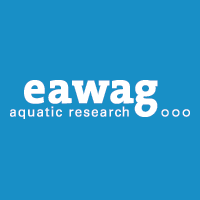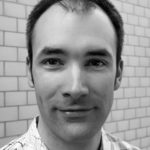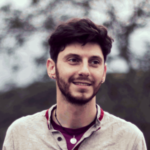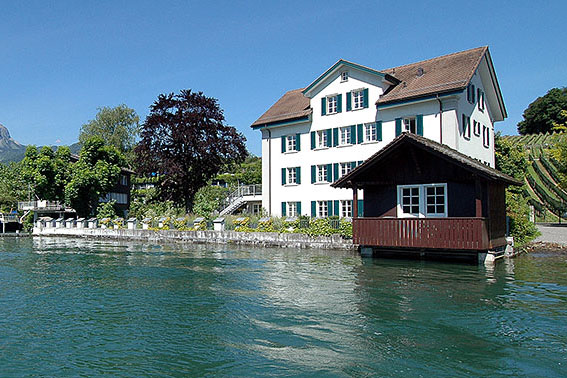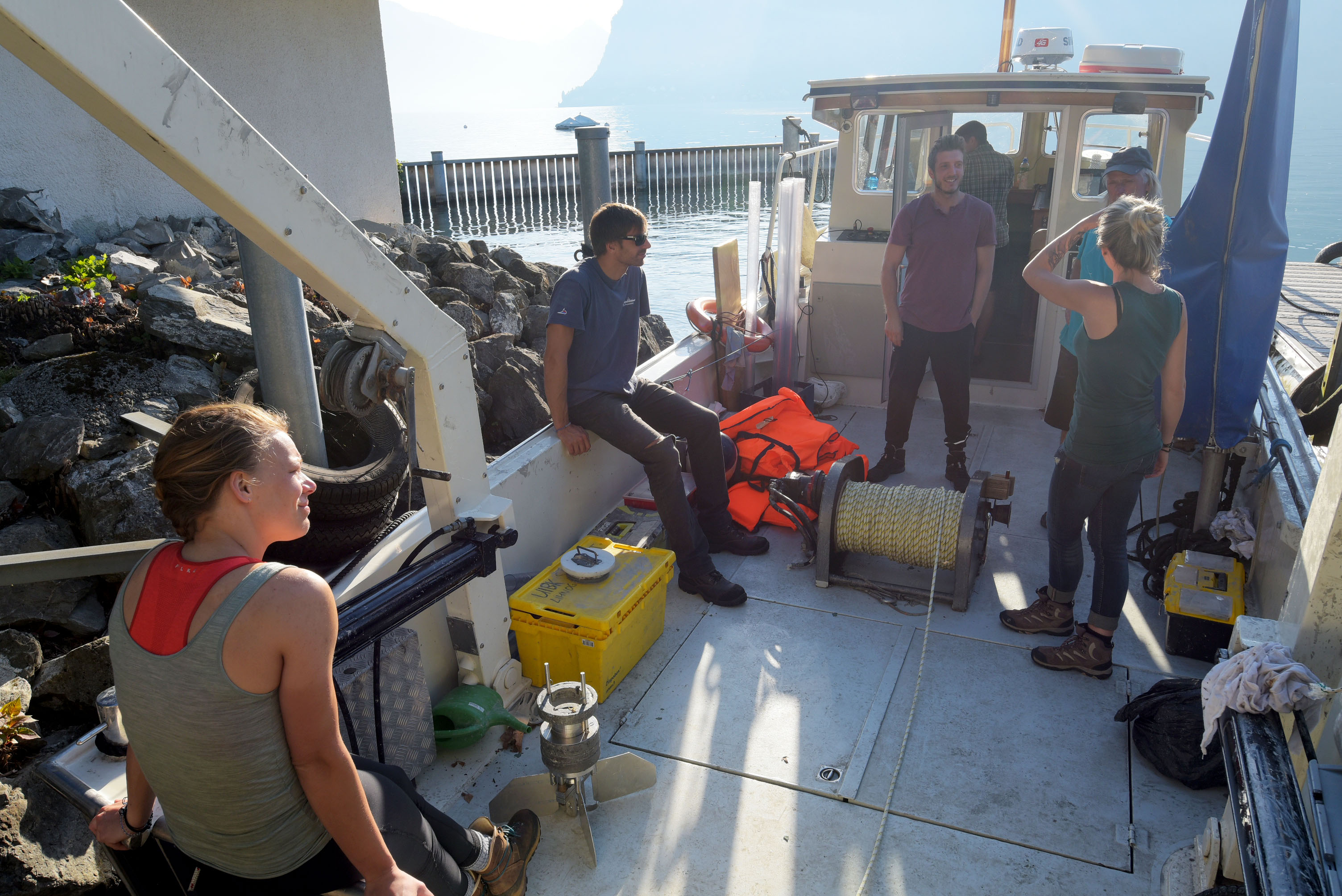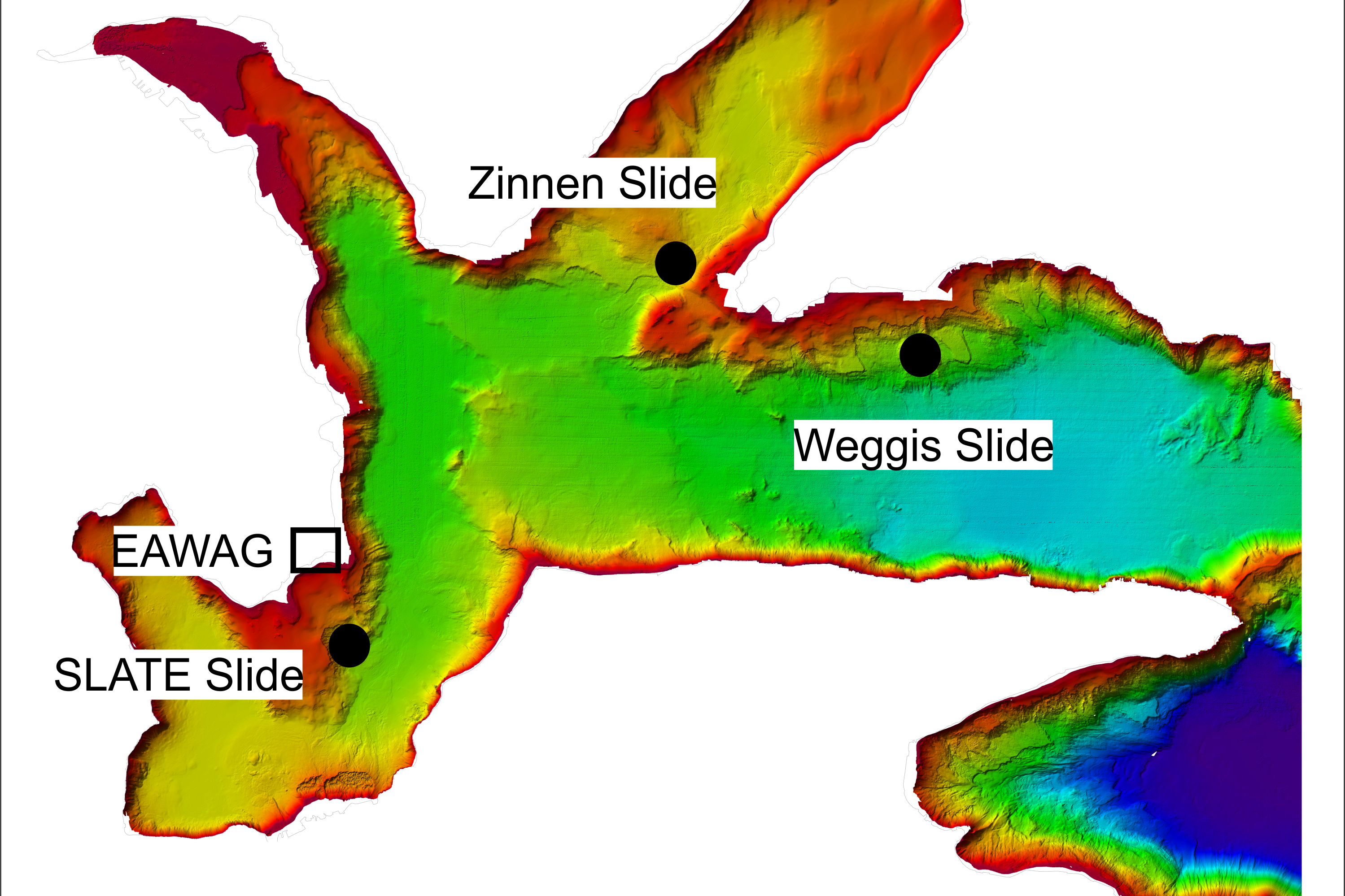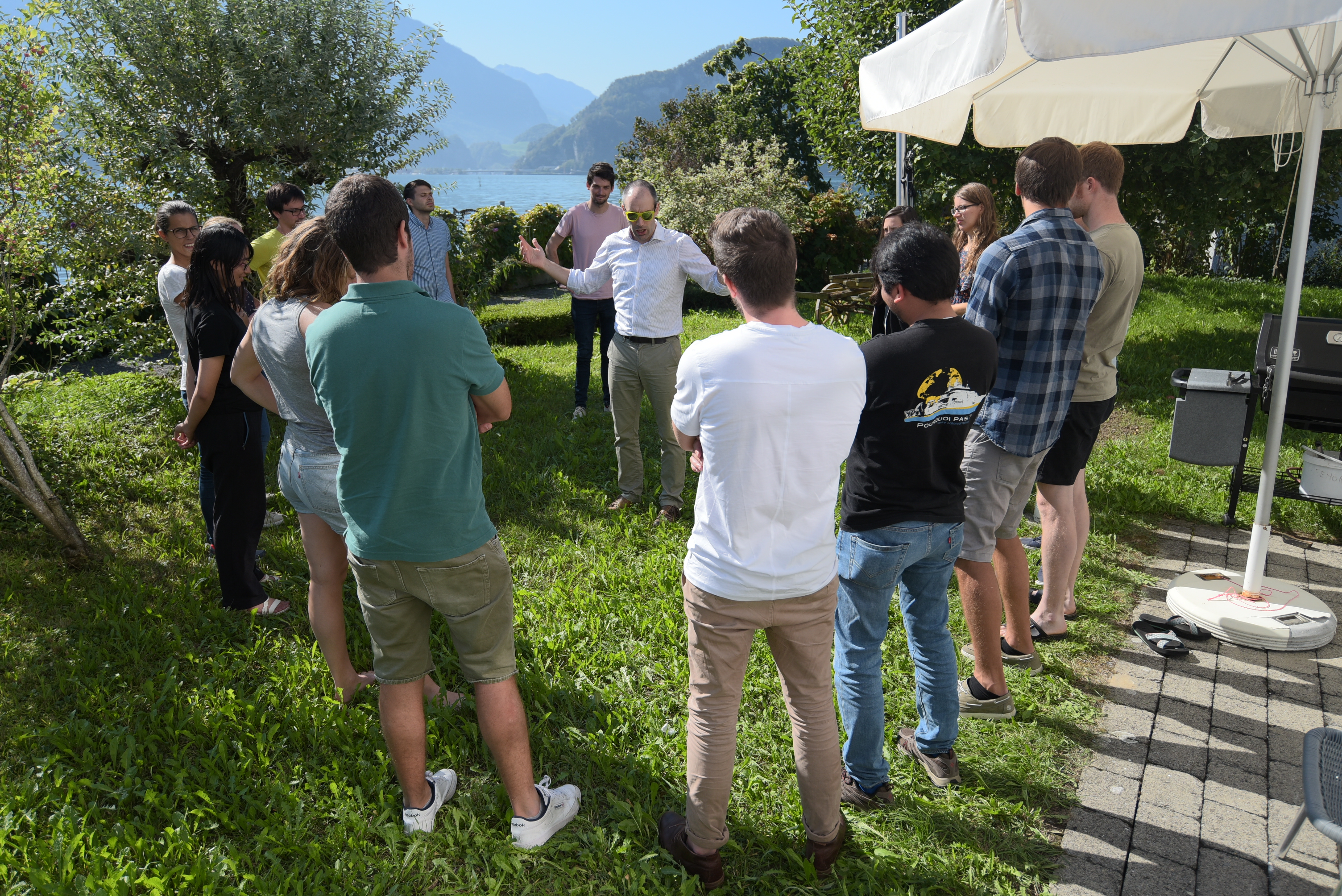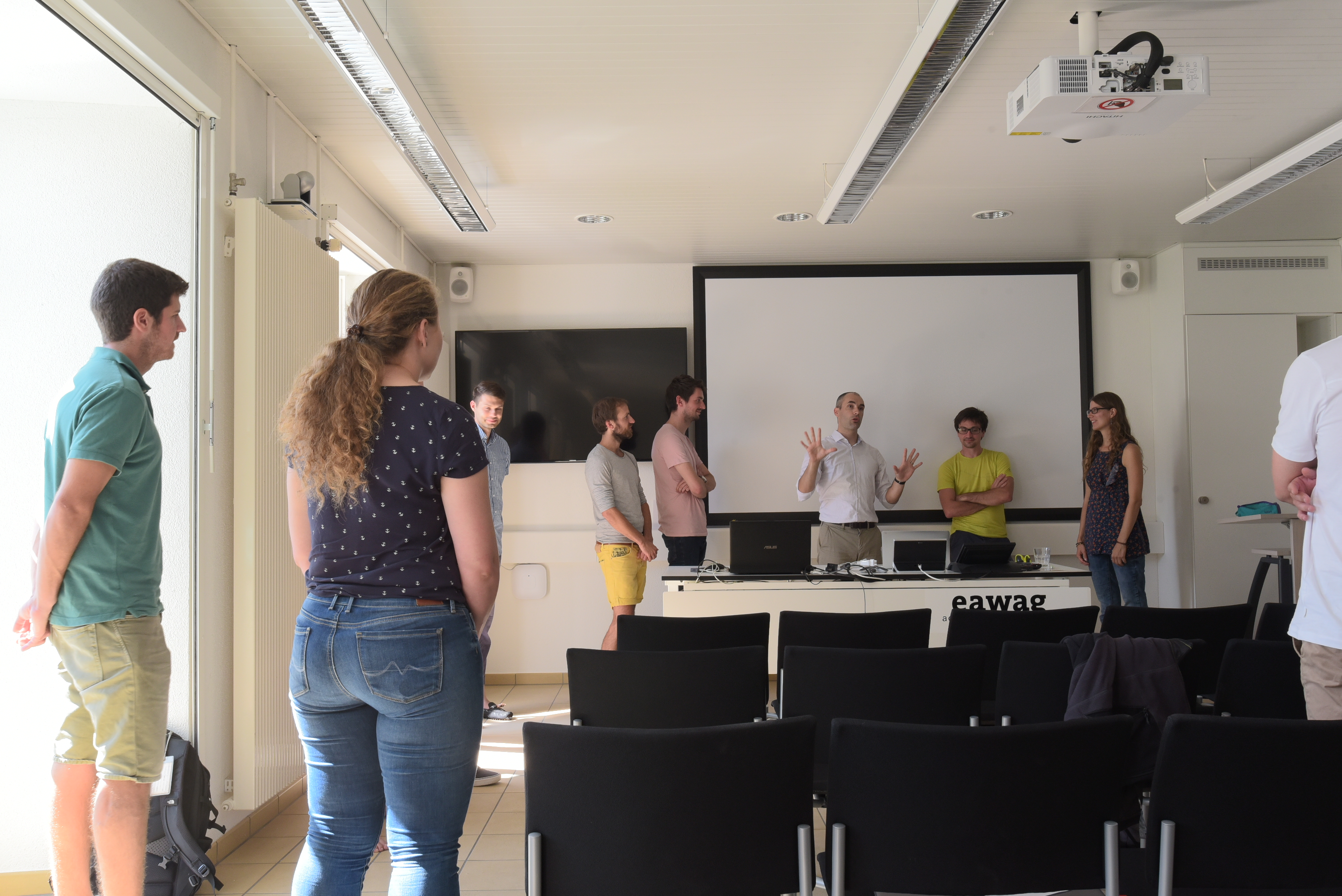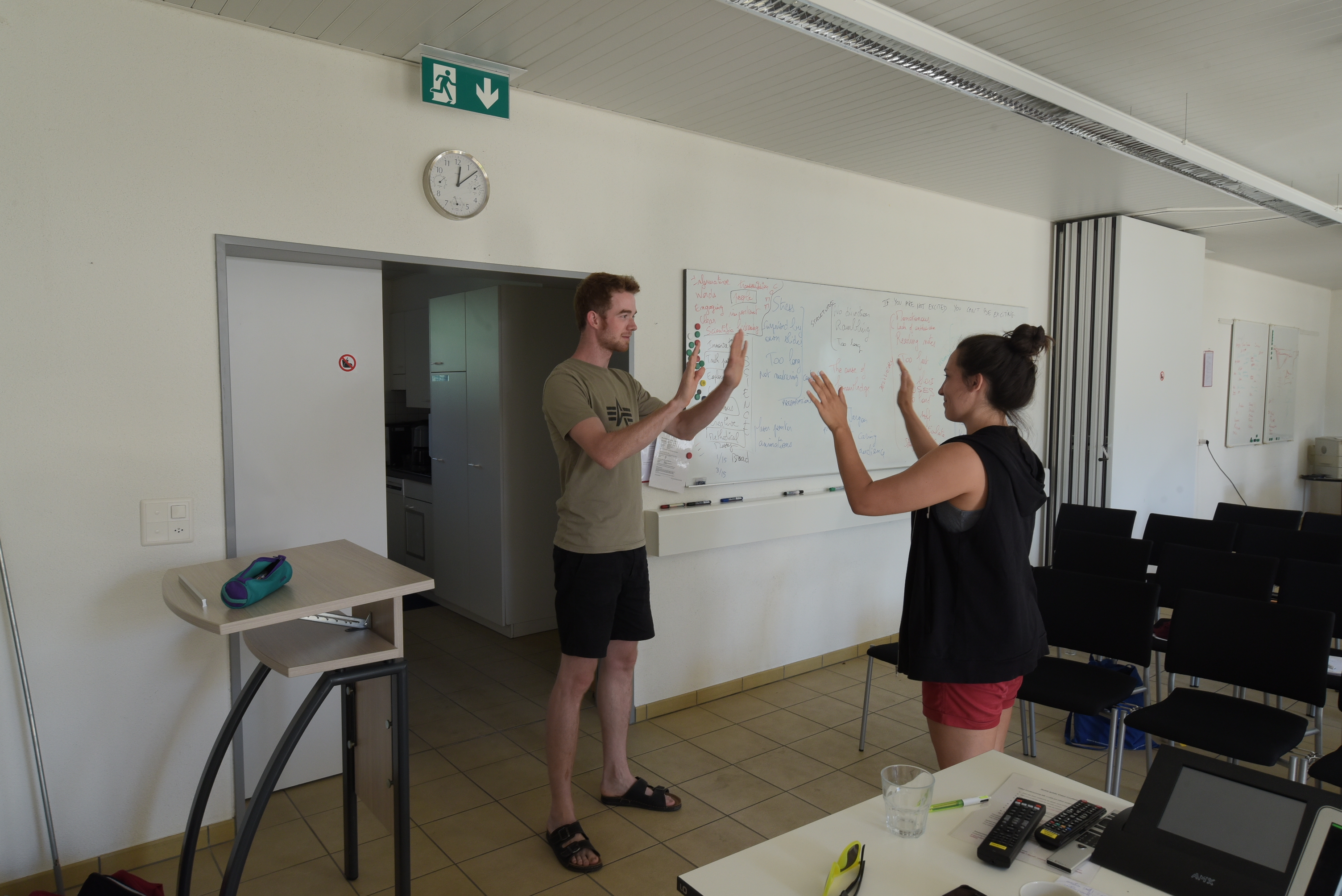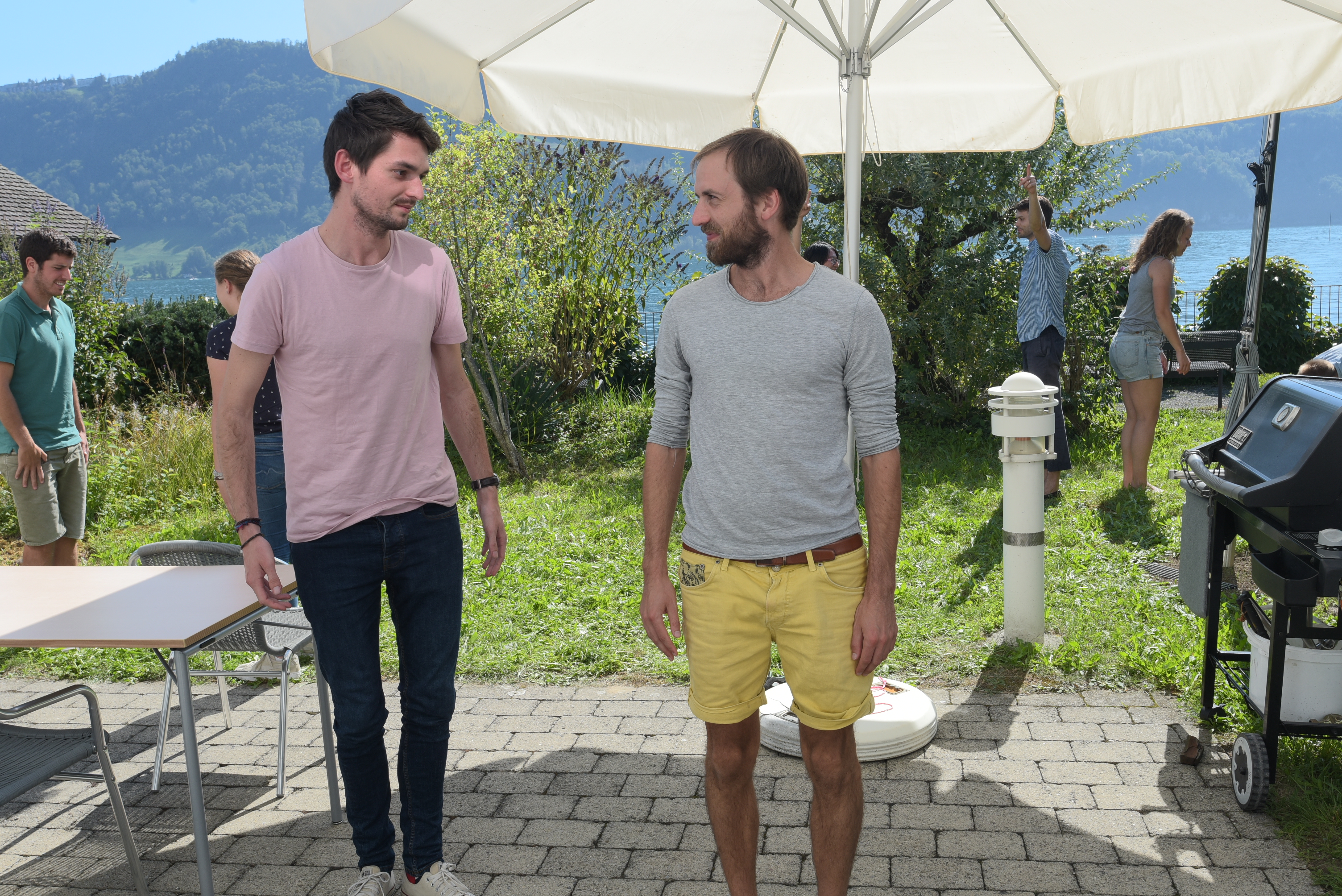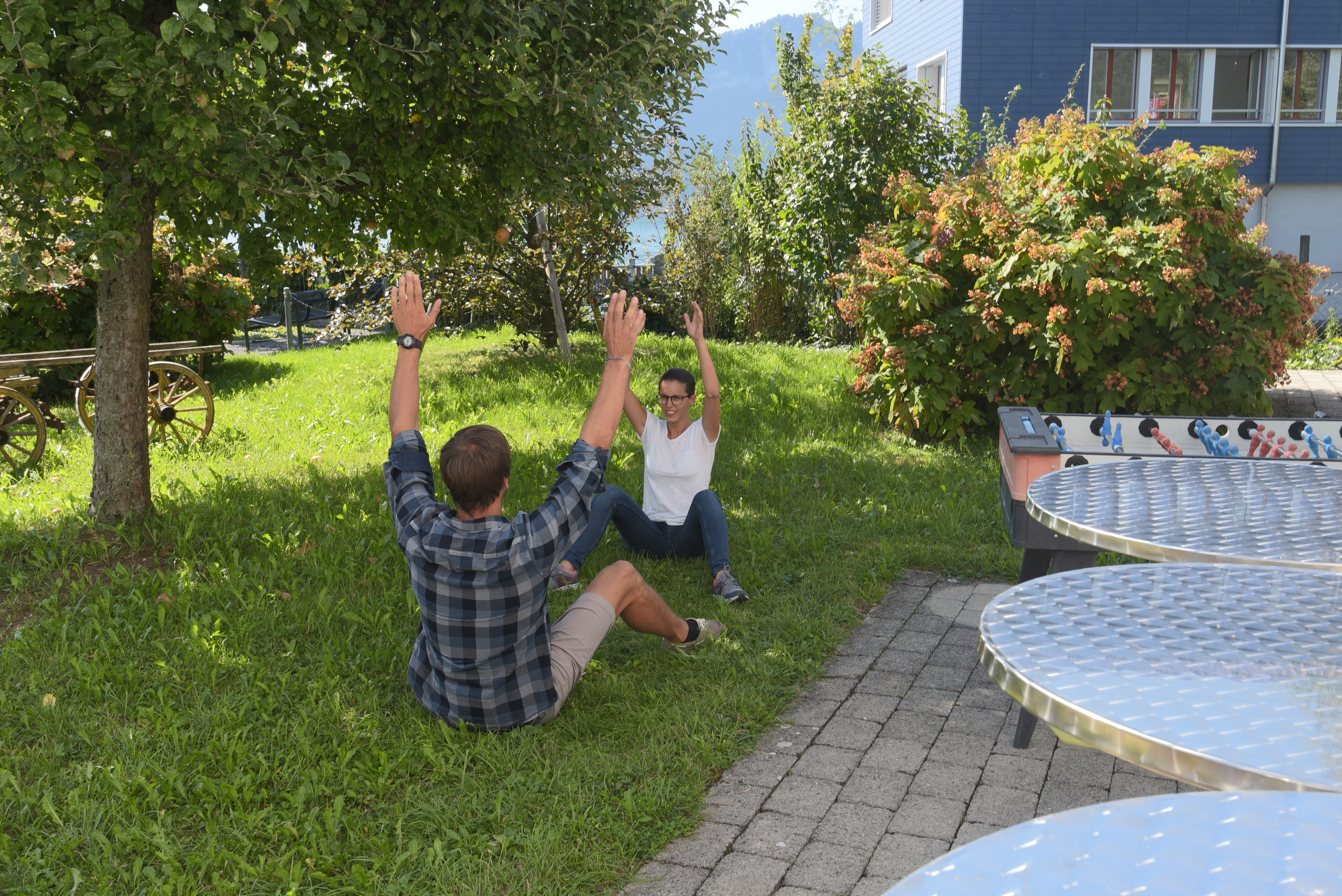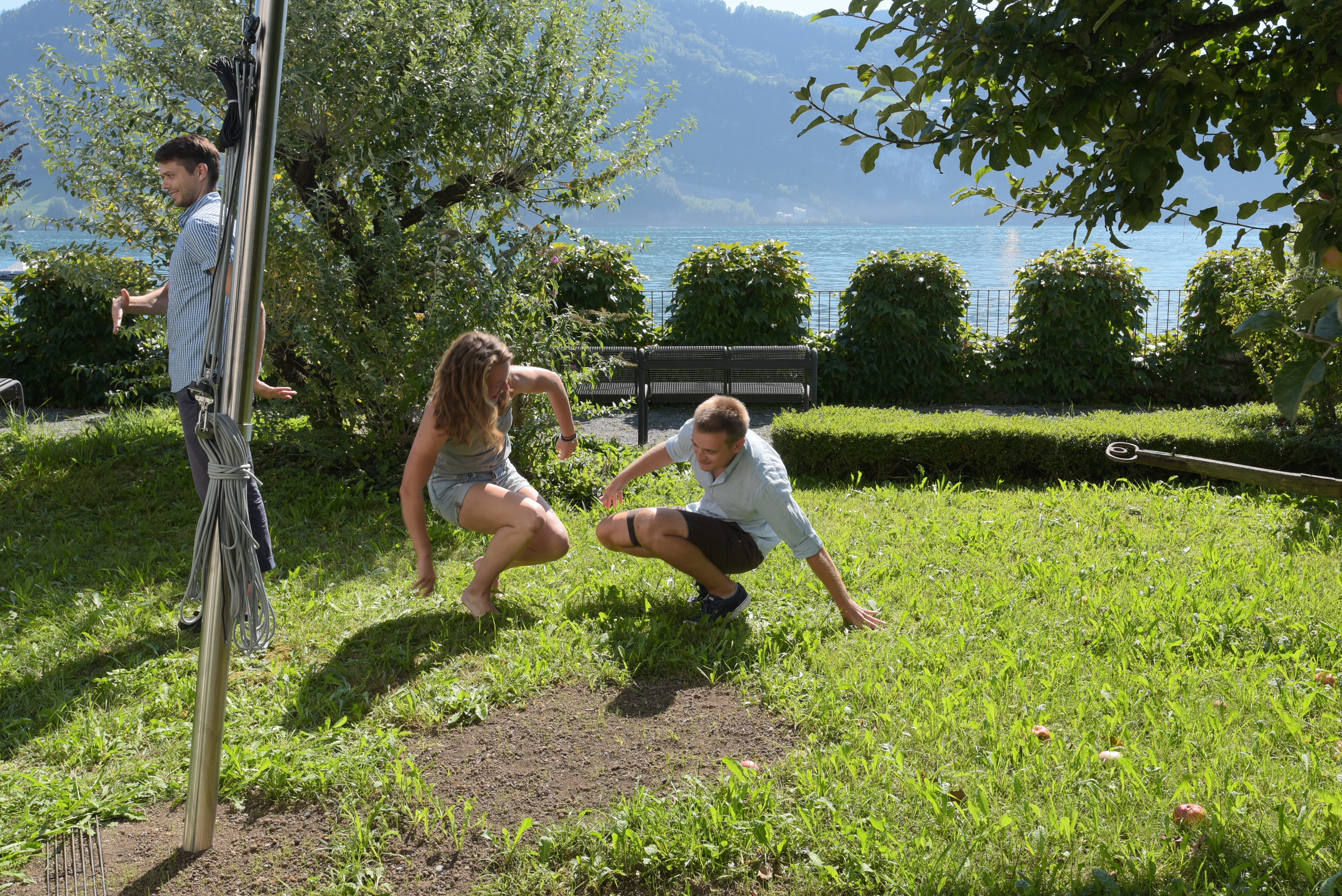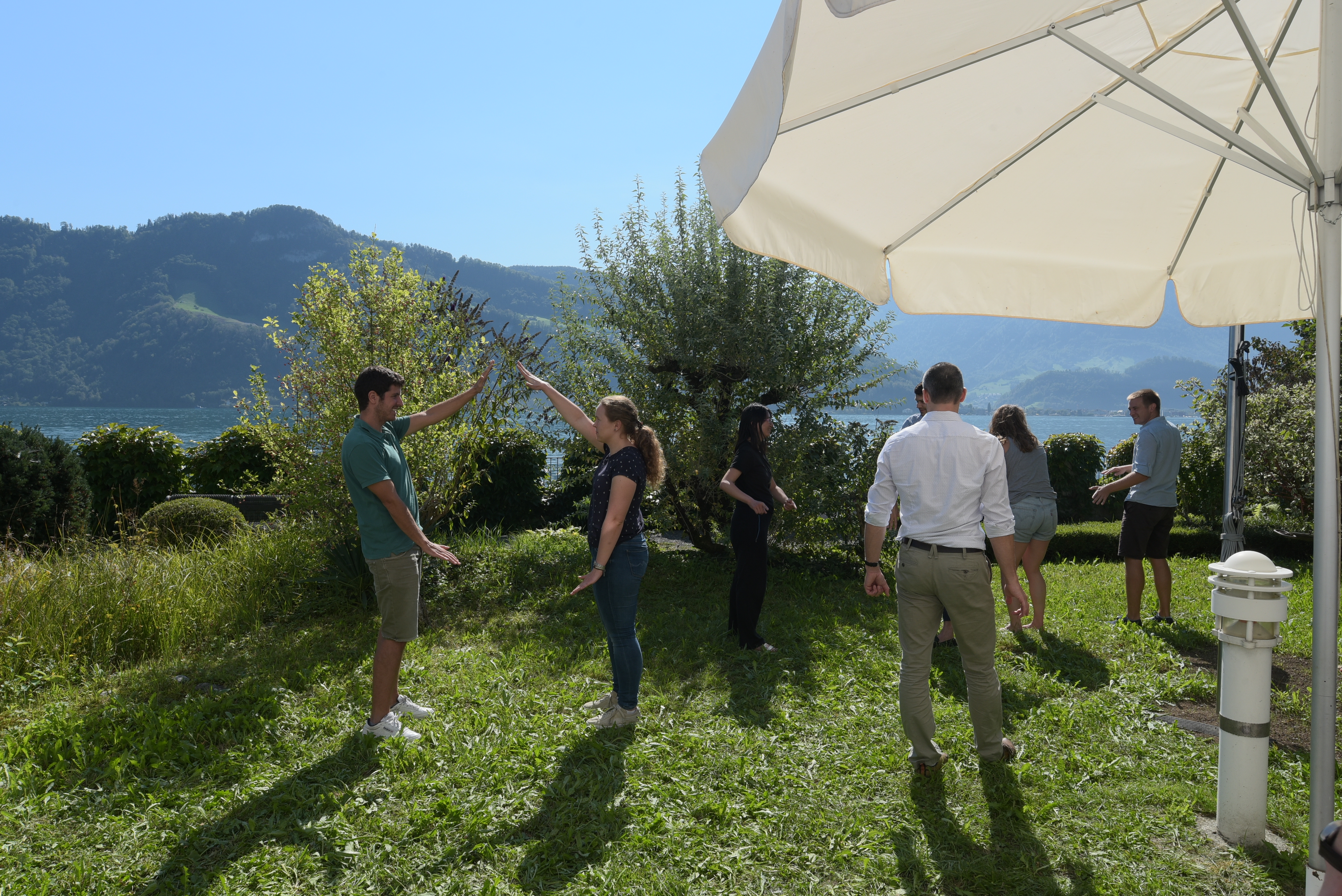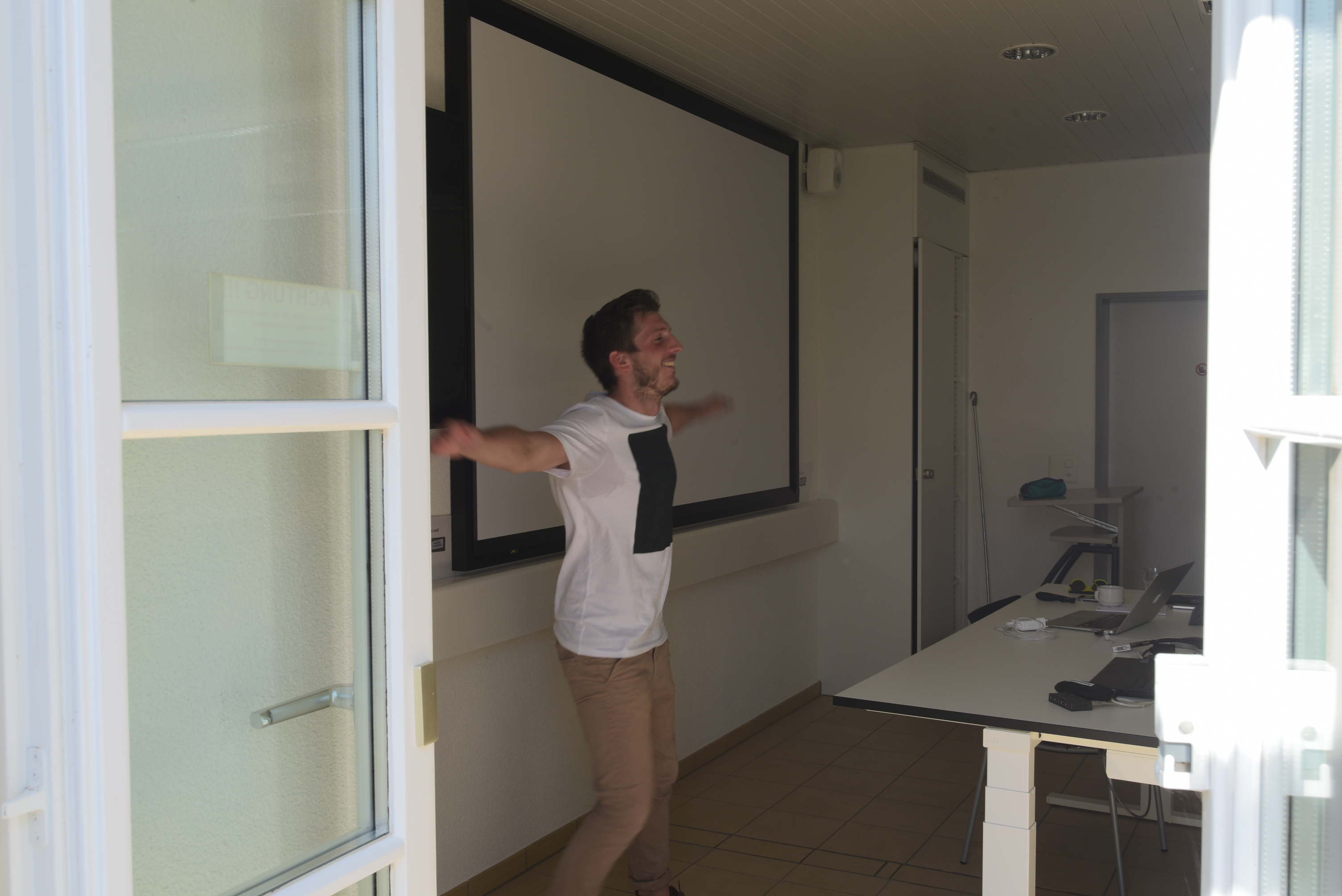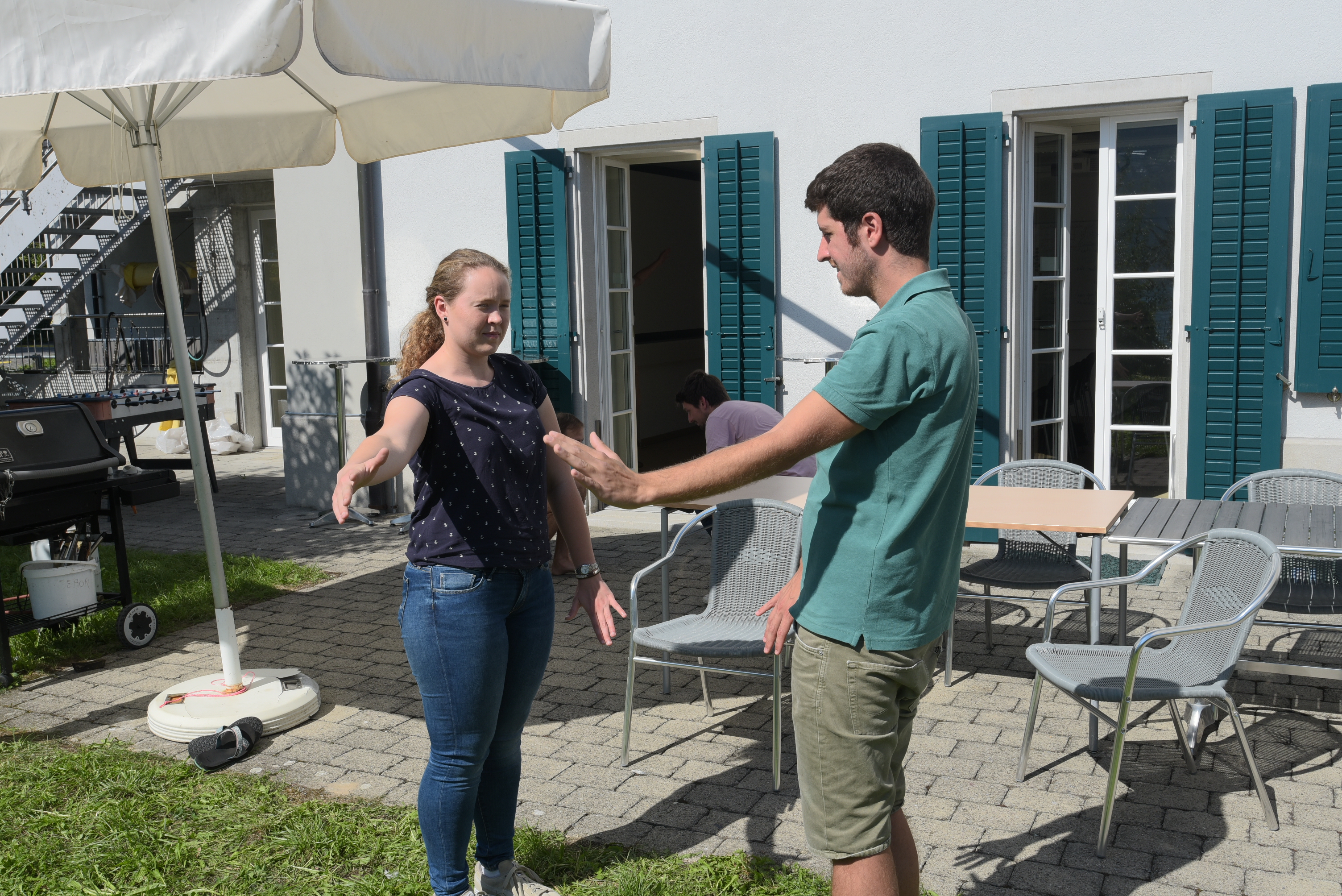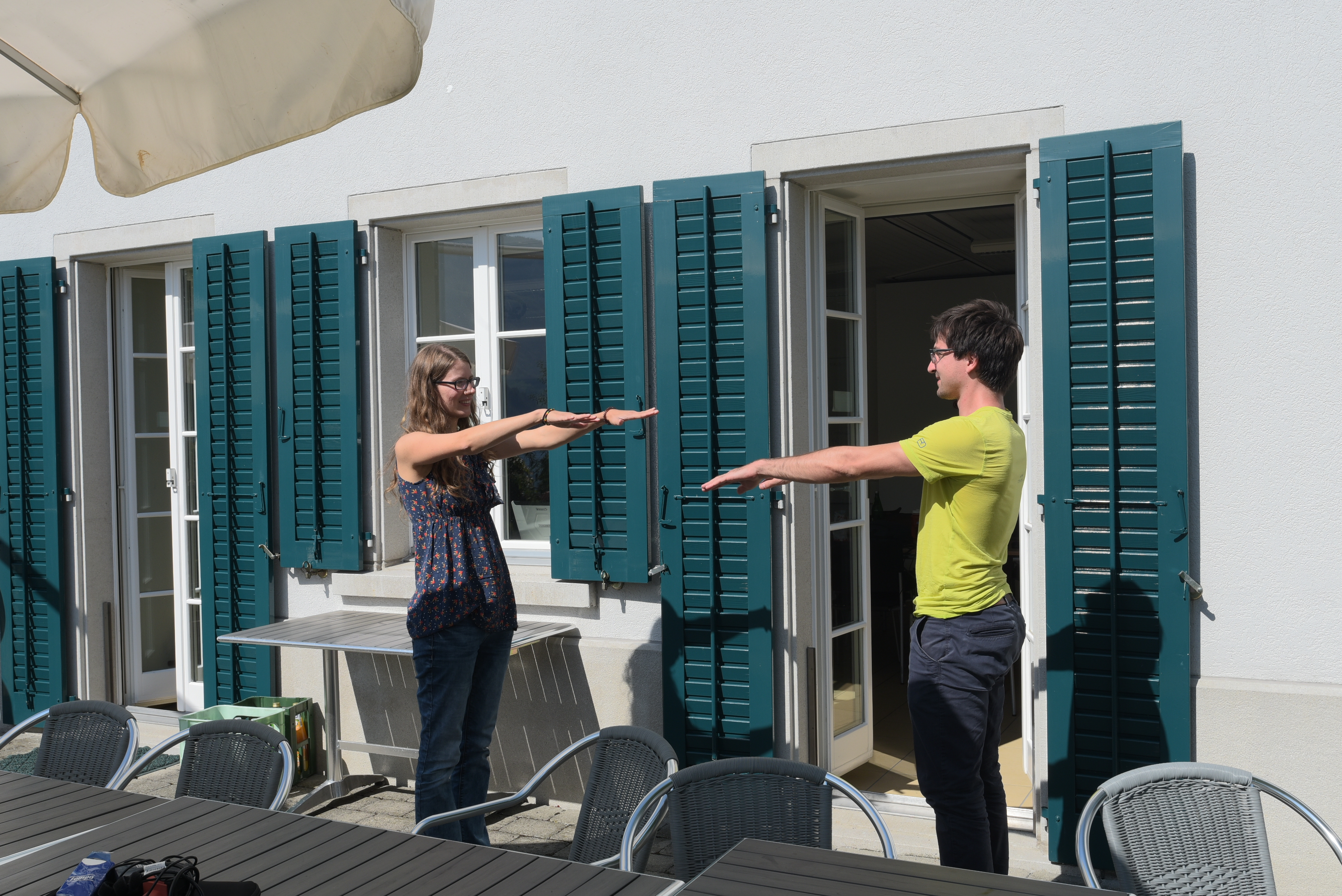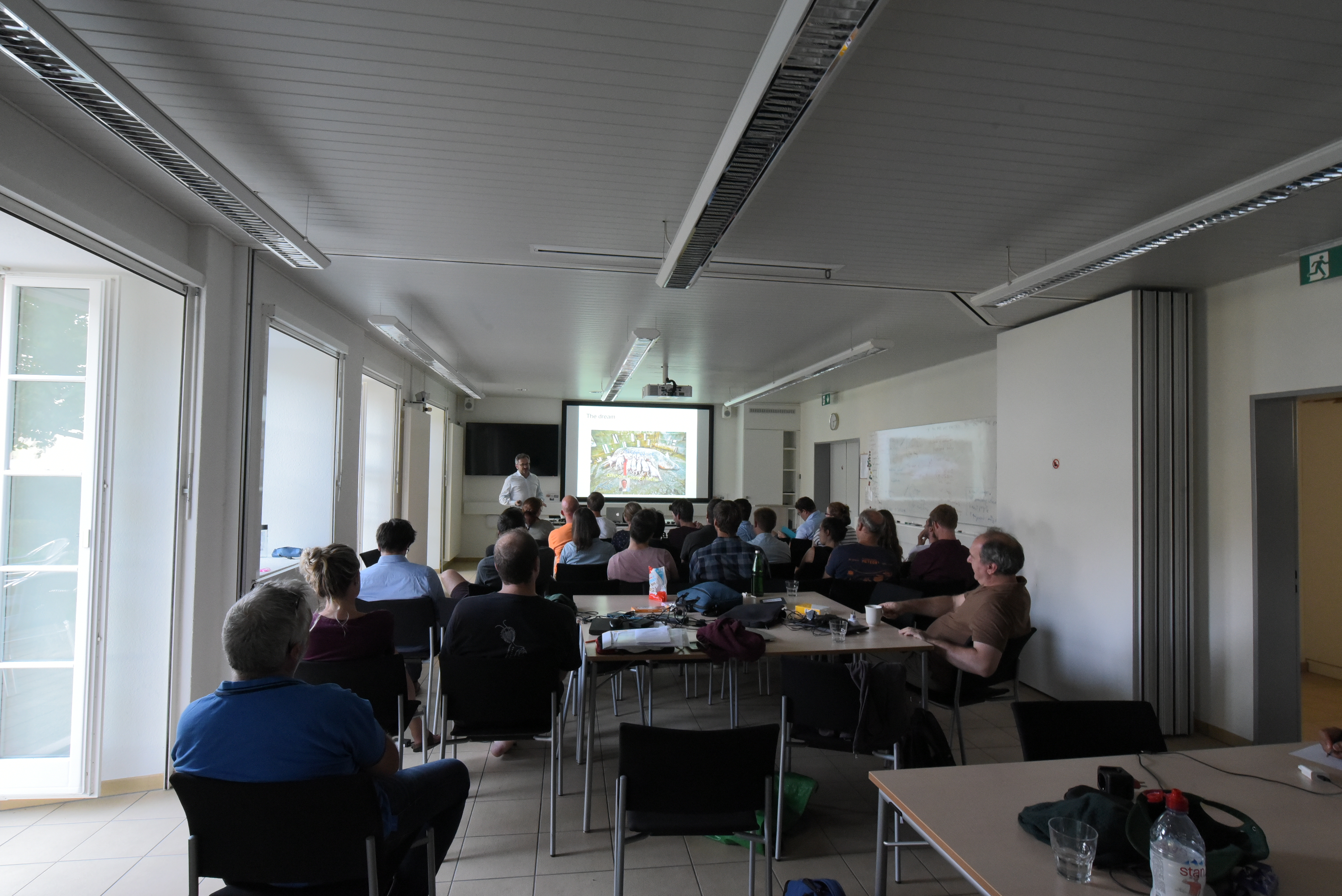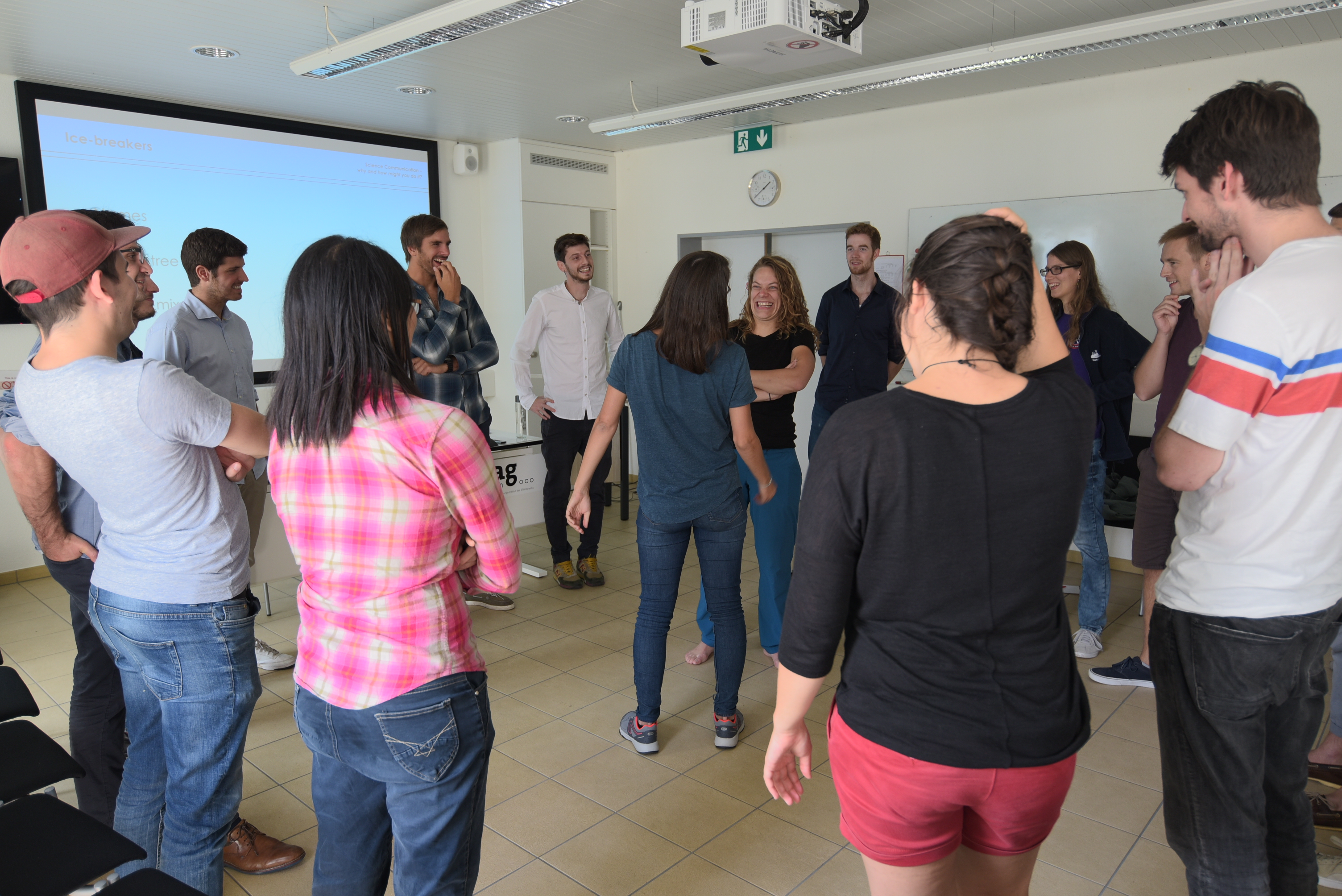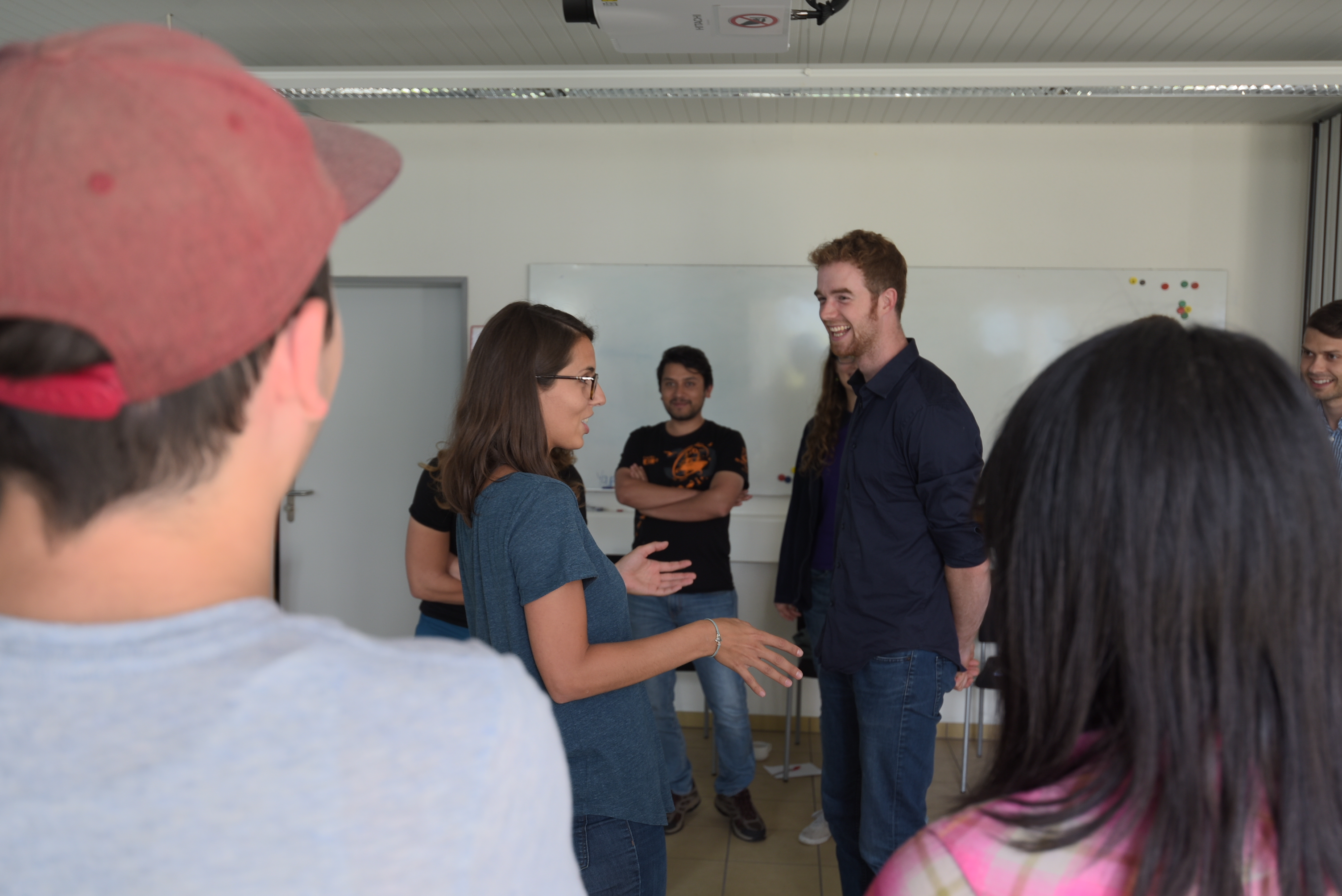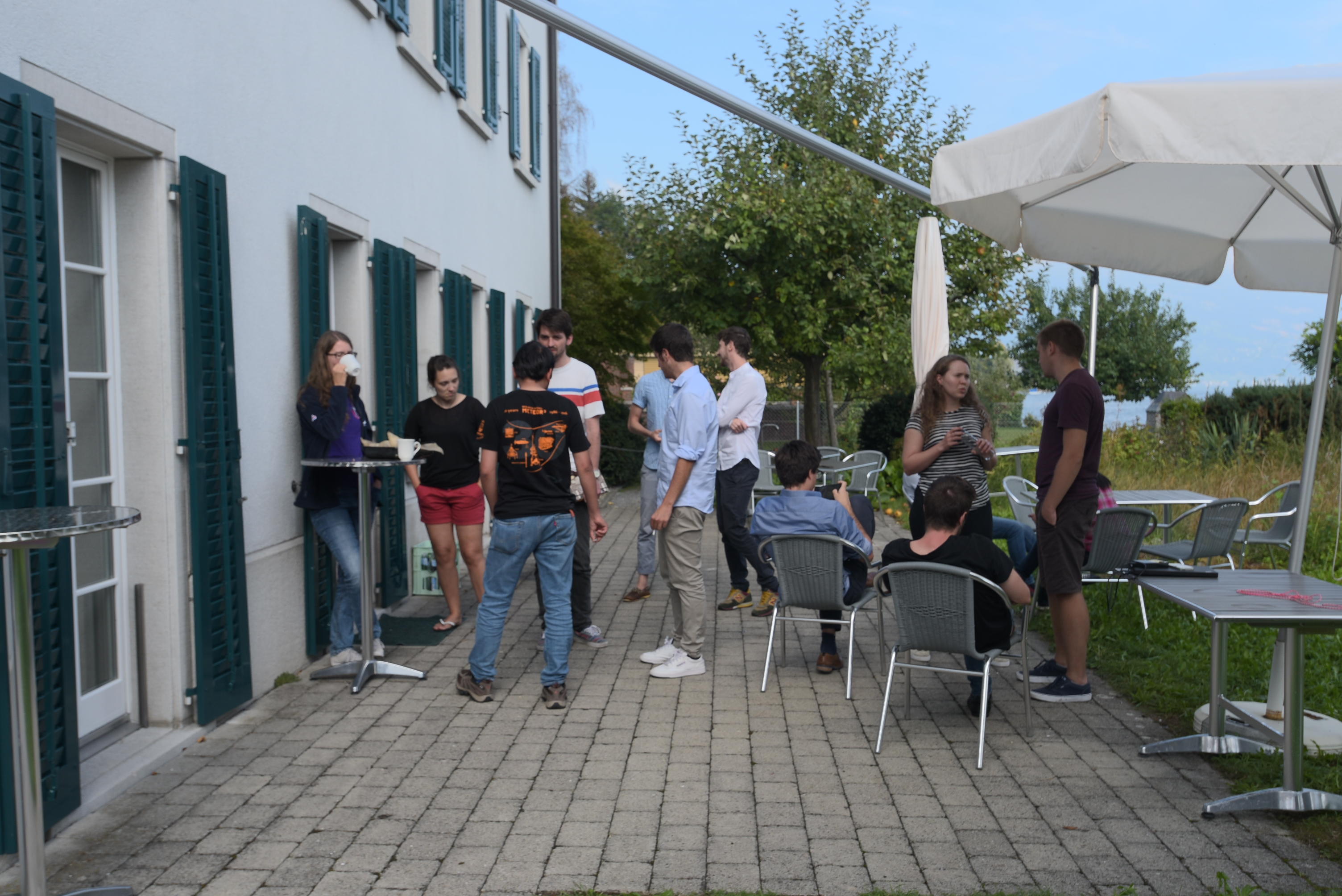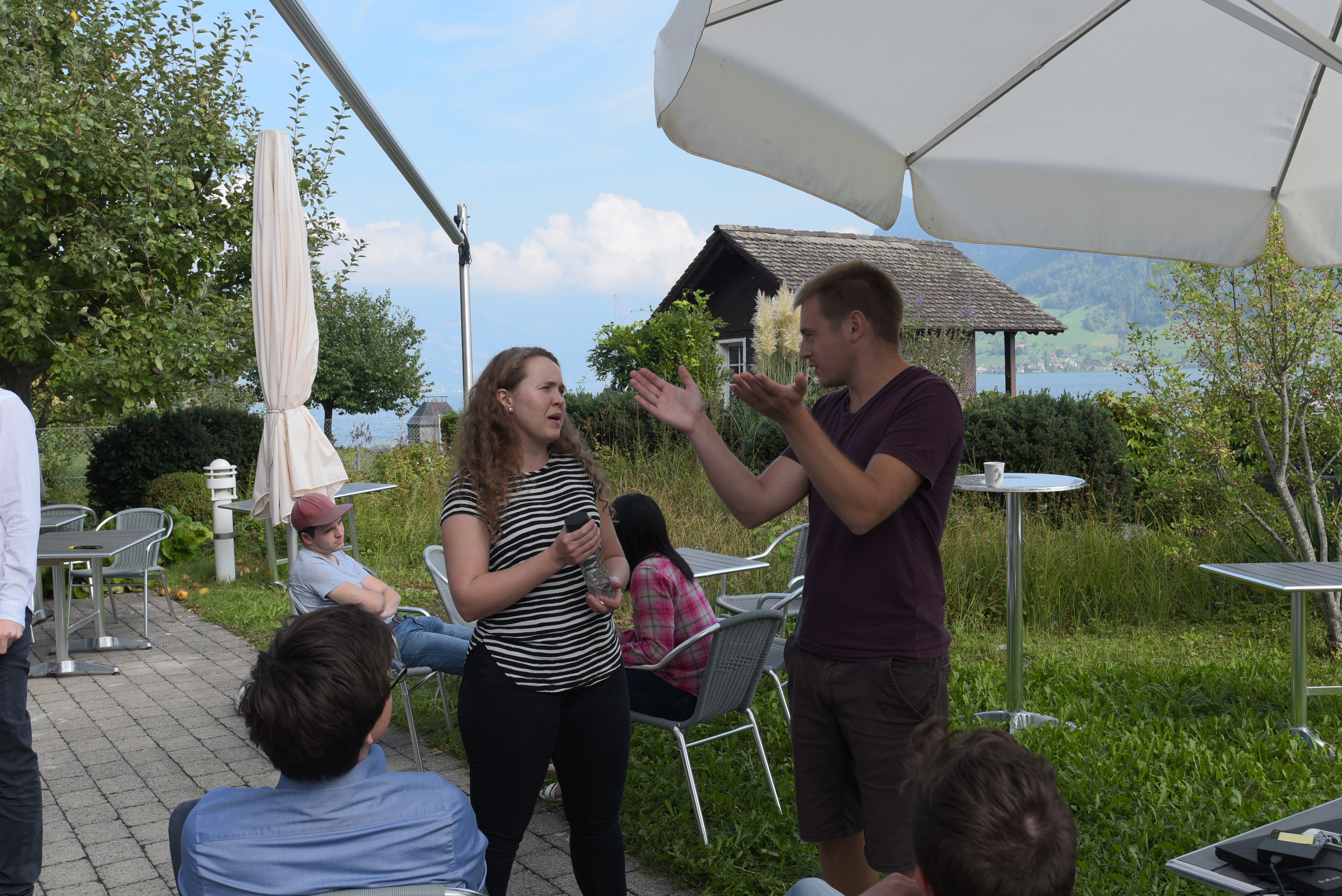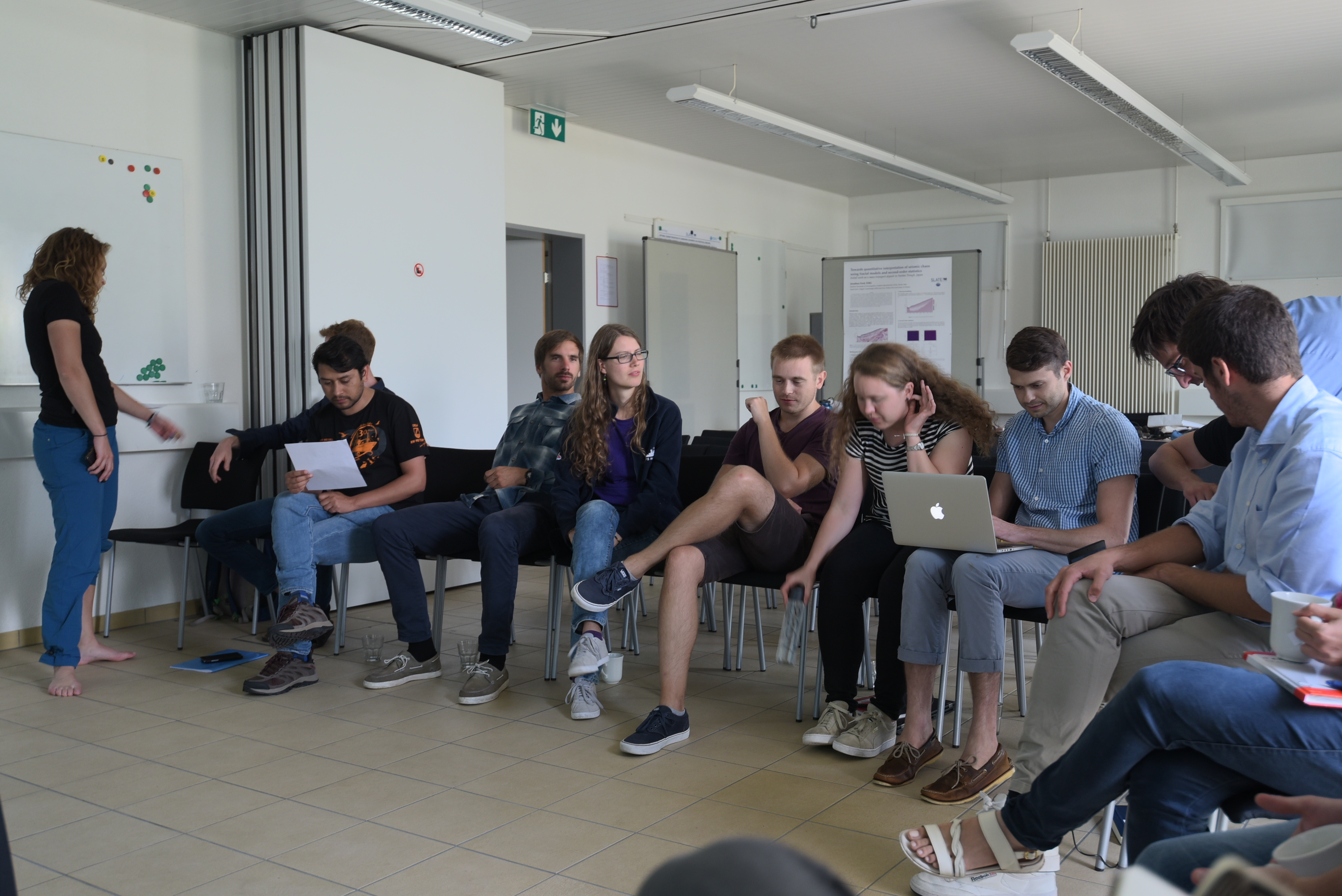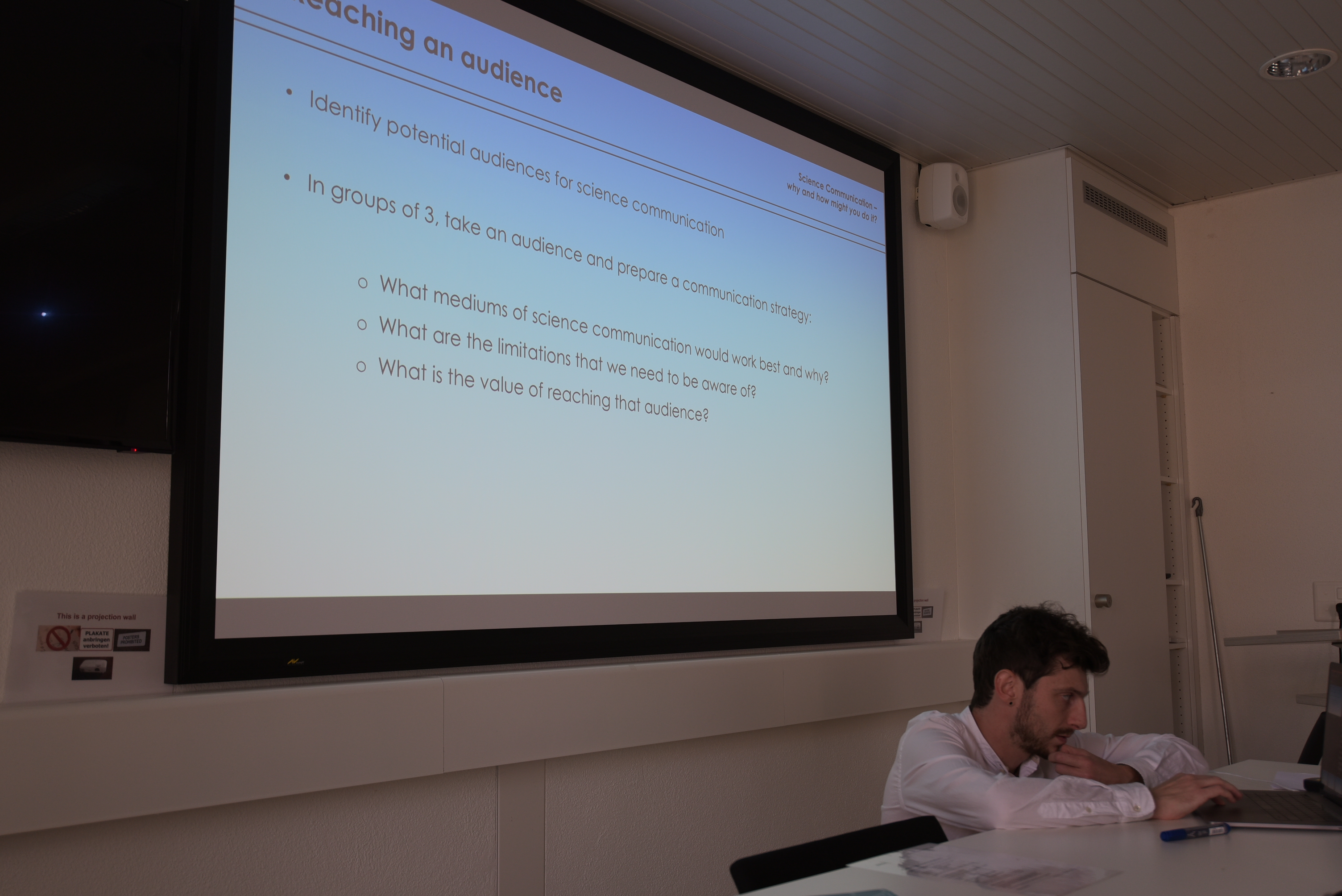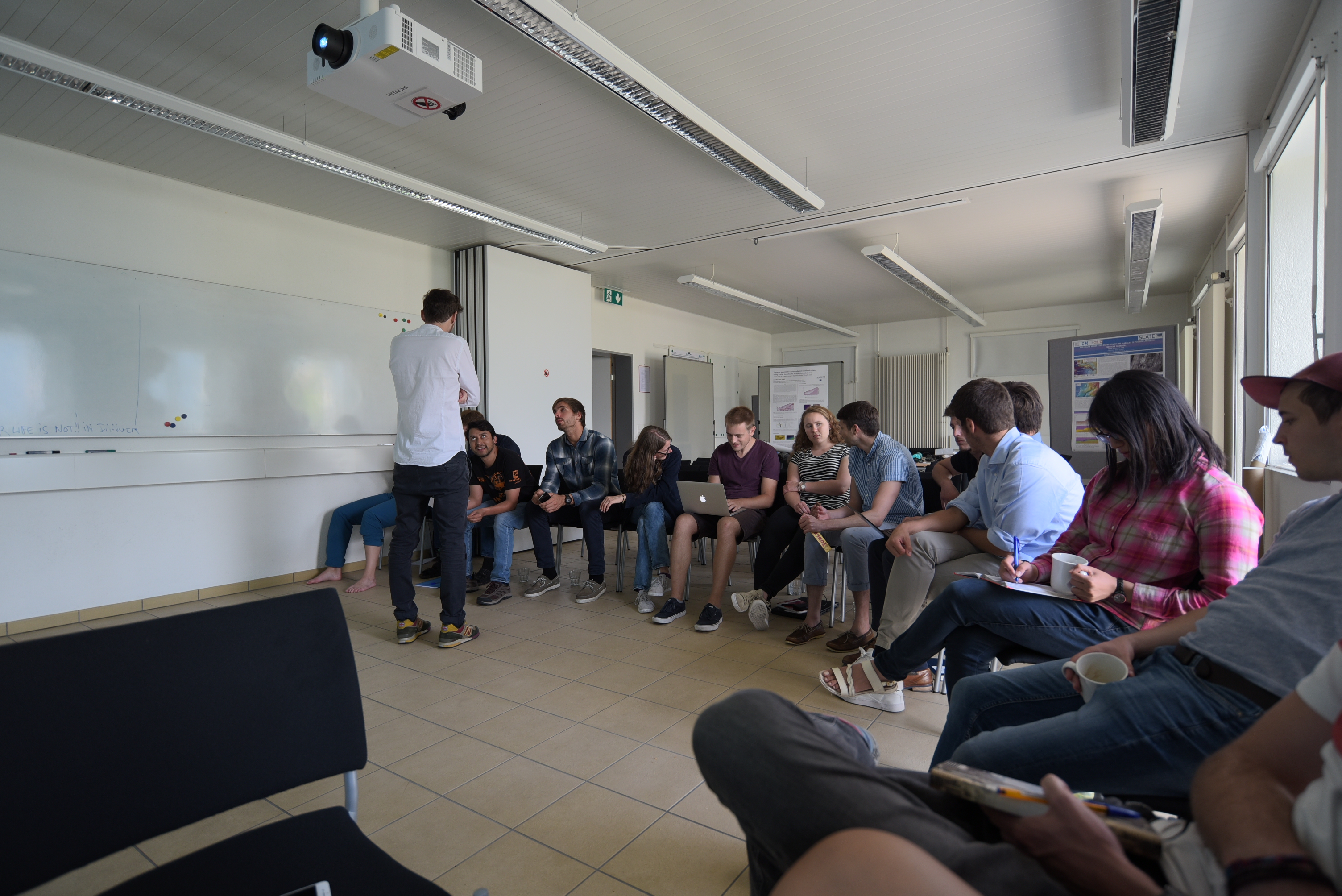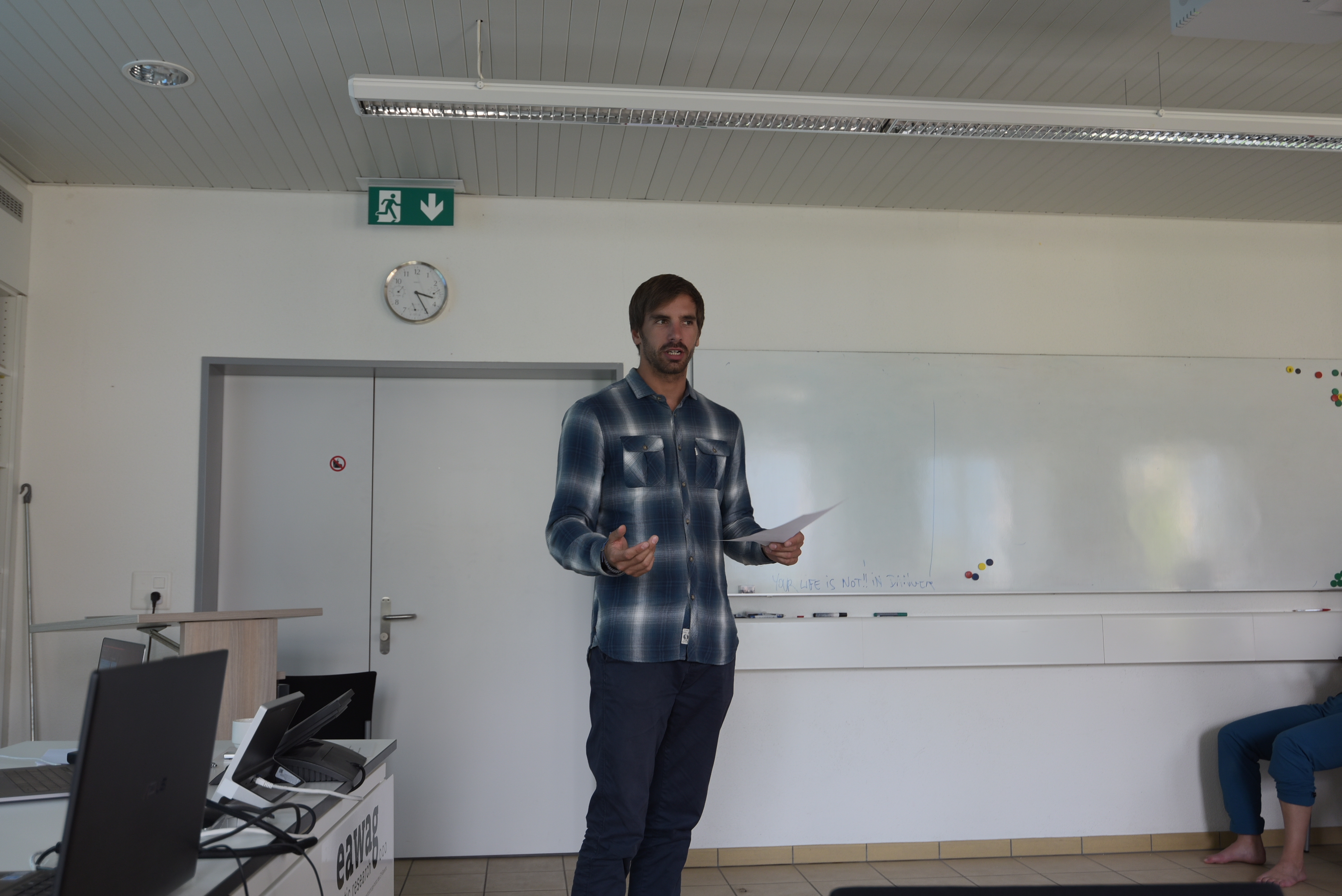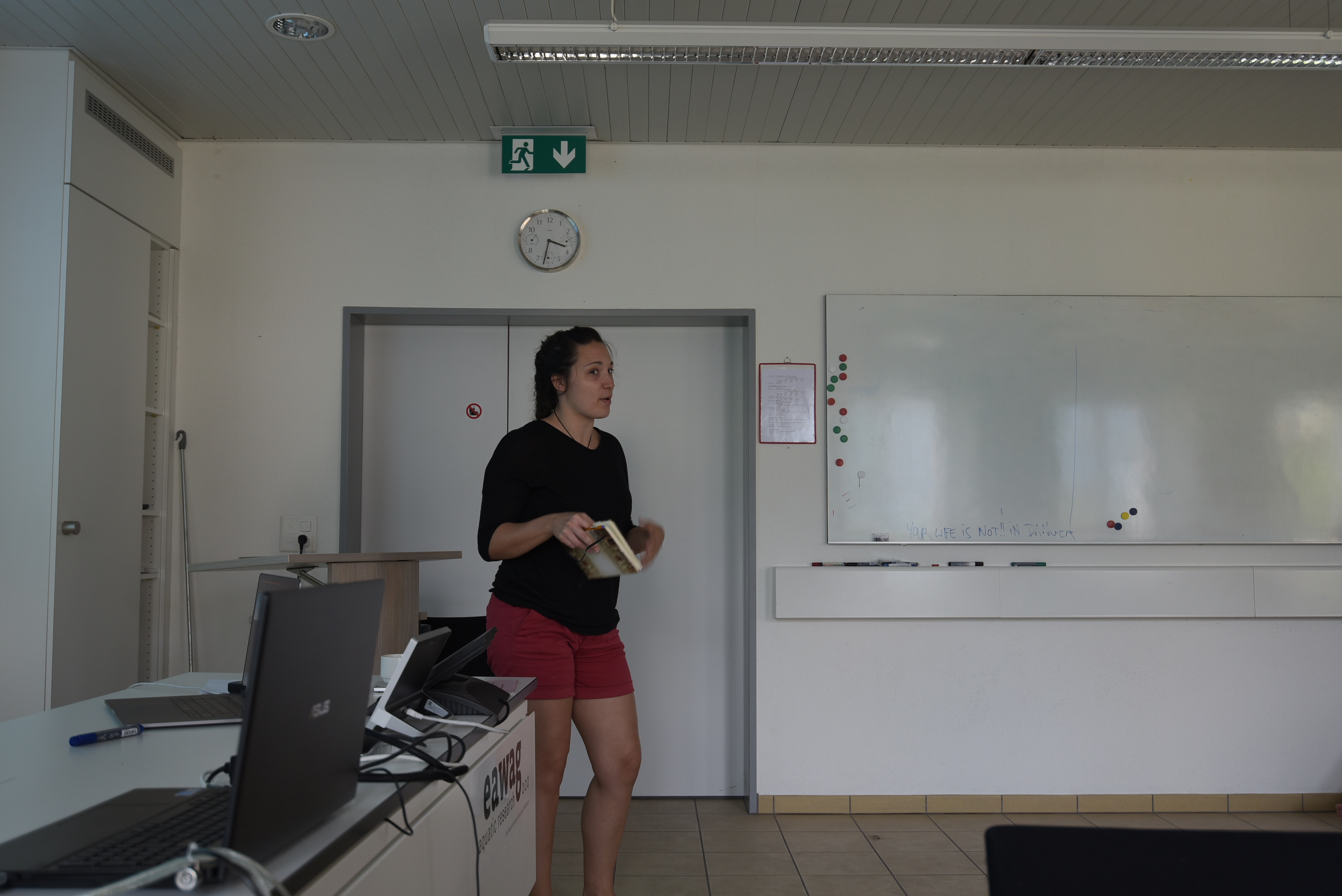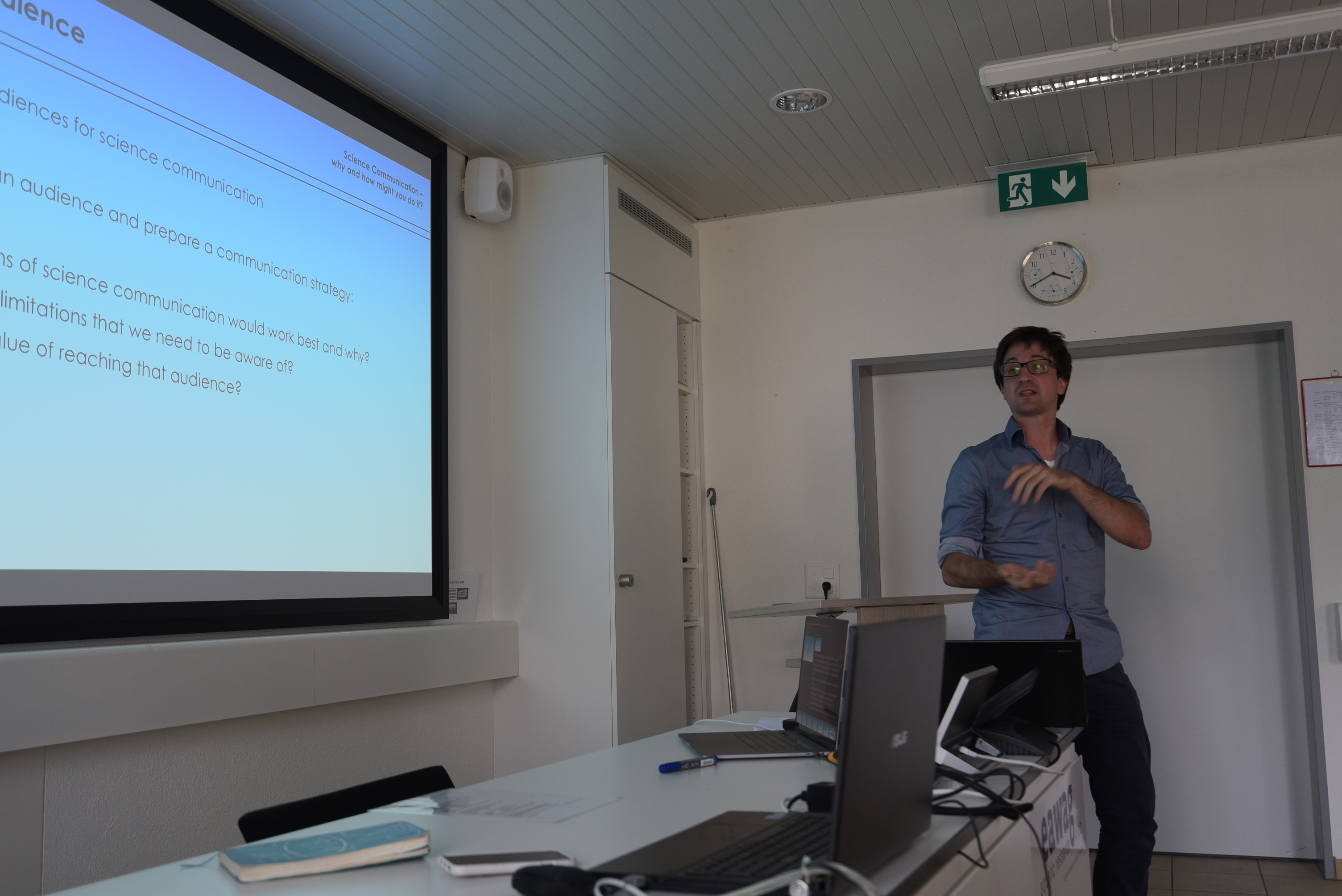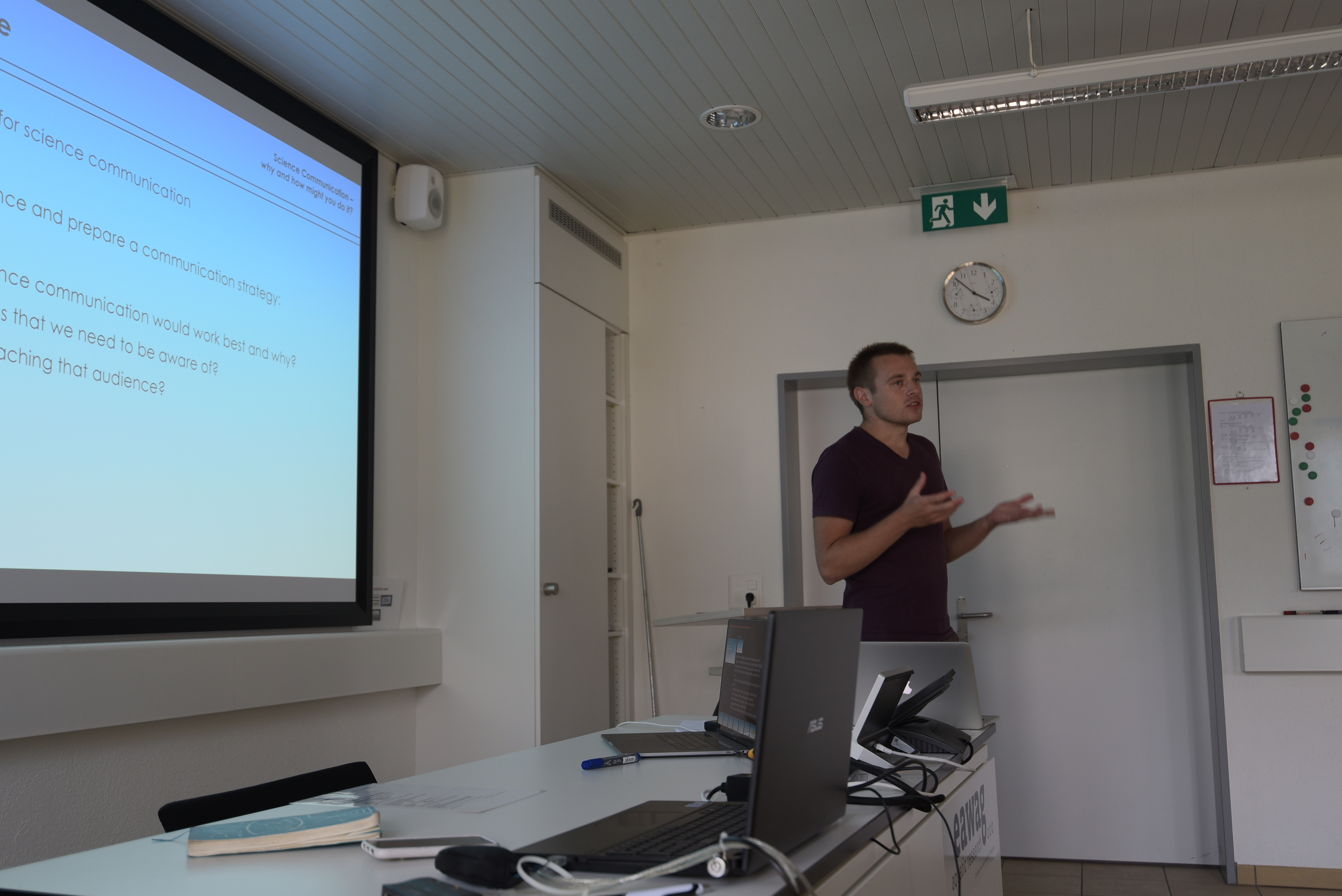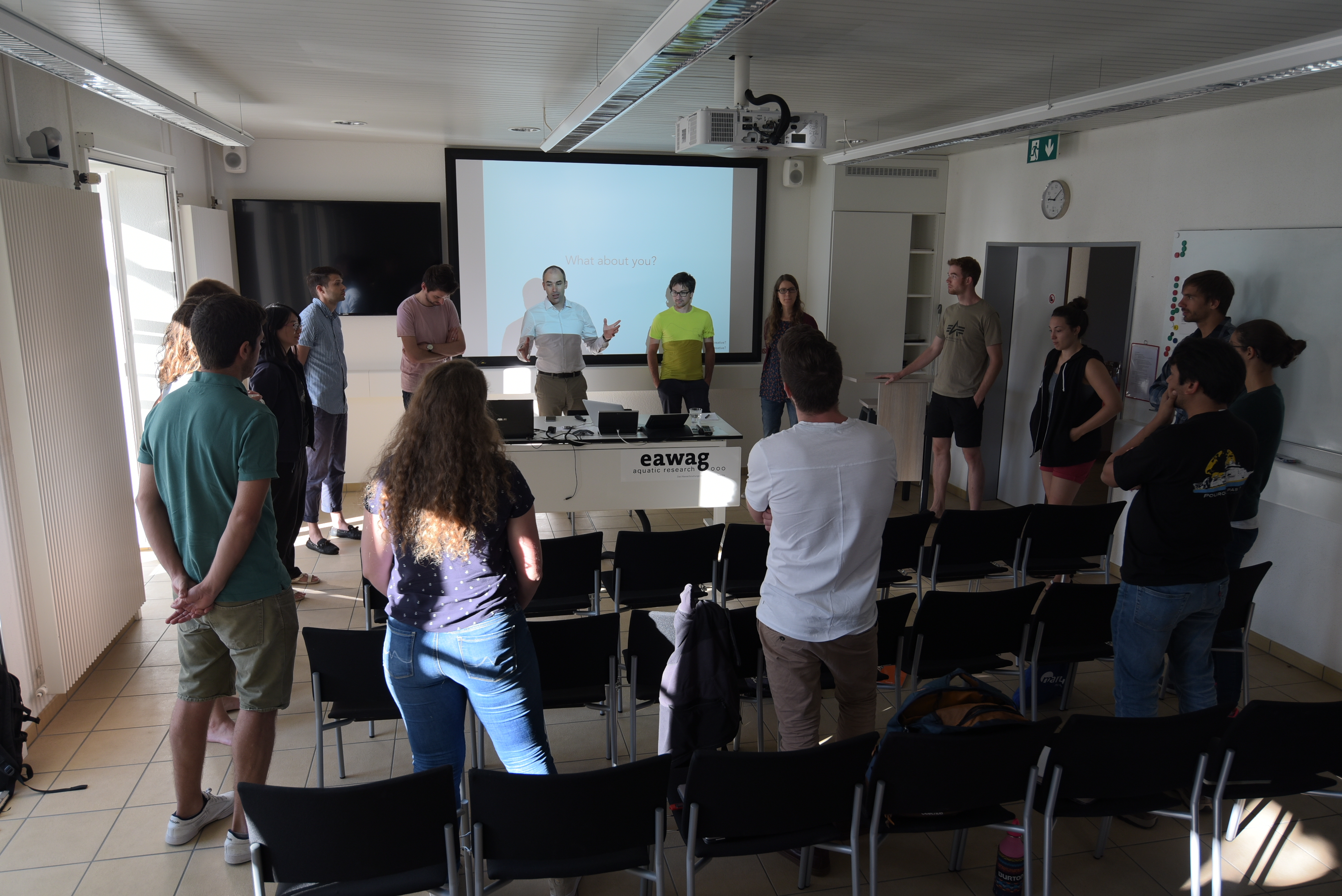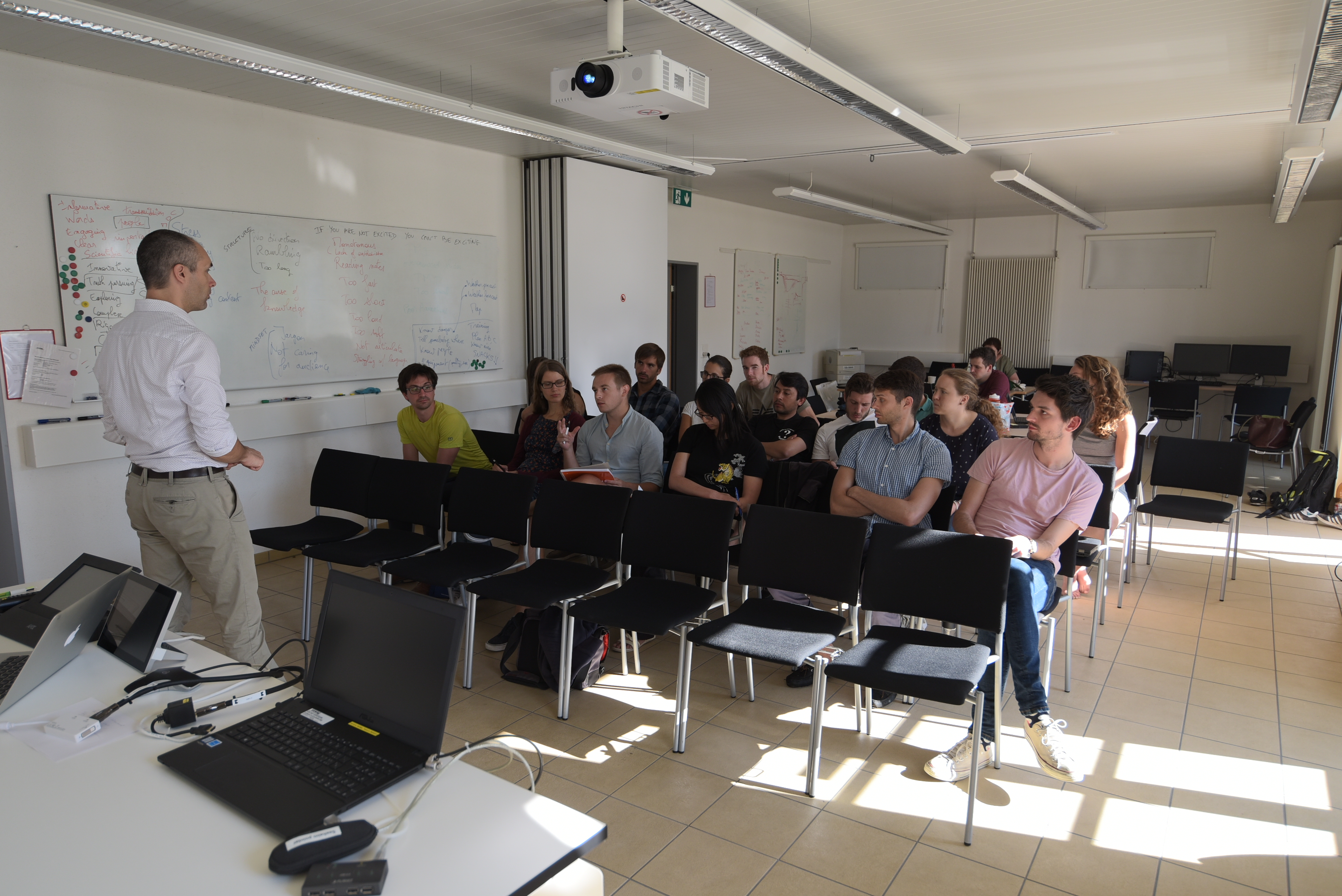Lake Lucerne Workshop - Expert courses
Jonathan Ford (ESR2), Monika Wiebe (ESR11), William Meservy (ESR12) | @ EAWAG Kastanienbaum, Switzerland (9-16 September 2018)
Aside from doing science, the annual workshops are an opportunity for the group to participate in specific training courses together. During the Lake Lucerne workshop, two members of The Catalyst—an improv comedy and science communication collective—visited to deliver courses focused on better communicating our work to the scientific community and the wider public.
“Established in 2012 in Lausanne, Switzerland, The Catalyst is a group of scientific researchers and professionals that uses entertainment as a means of engagement with the public.”
Presentation Skills for Scientists
The presentation skills course started with a simple task: say your name and an object that you like and why you like it. The aim of this was for Samuel Lagier to learn our names, but also to show us how to create connections between a presenter and an audience—in this case through short personal stories. We then went on to discuss what makes a talk bad, and the basics of how to make a talk good. The main message of this course was to help us understand that a presenter is in a lot of ways like a mountain tour guide: they first need to be well prepared so that the whole group can arrive at the goal. In the case of the presenter this means that the audience has received and understood the message, for the success of a talk depends on what the audience gets out of it.
In order to make his own talk successful, Samuel applied various practical methods, such as challenging us to explain our research in less than ten words without technical terms, and to present this in front of the others. We also developed short stories as a group that highlighted how we as human beings tend to be interested in conflict and resolution. We as presenters should consider that a good way to relate our science to the audience is to show them the problem/challenge/question and then the solution.
Science communication
Communicating your work is perhaps one of the most important (and often overlooked) jobs of any scientist. Day 1 of this course challenged us to think about how we can effectively communicate our work to different parts of society: the general public, policy makers, business leaders and journalists. Submarine landslides are a significant geohazard, but much of the public are not even aware that they exist. As geoscientists we have an important role to play in communicating risk and information about natural hazards to the wider public.
The second day of the course Robbie took us out of our comfort zones and asked us to plan some scientific outreach—in the form of a short YouTube-style video. For many of us this was the first time even considering making a video about our work.
Robbie invited us all to apply to participate in the Exposure Science Film Hackathon, a three-day course designed to bring together scientists and filmmakers. The goal of the course is for each participating group to create a short but engaging film that communicates their science to a non-scientist audience. For further information about this project, application instructions and examples of previous films, please click here.
Related blog posts from the ‘Lake Lucerne Workshop’ blog series
- EAWAG Kastanienbaum
Impressions
- [log-in required]
- [log-in required]
- [log-in required]
- [log-in required]


